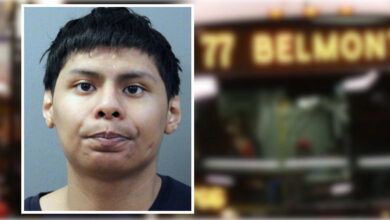Lawmakers’ victim apathy and more: Letters

The tragic story of Theresa Bliss, whose son was brutally murdered, highlights the importance of focusing on the victims of senseless crimes. In a heartfelt letter to the editor, Jeannie McDermott-Weldin of Dumont, NJ, expresses her support for Ms. Bliss and calls on lawmakers to prioritize the needs of grieving families over those of criminals. She emphasizes the pain and suffering that these families endure and urges public officials to provide them with the support and attention they deserve.
Turning to a different topic, Edward Hochman of Manhattan shares his frustrations with the Medicare system, questioning why individuals are coerced into enrolling in a financially stressed government program when they are content with their private insurance. Hochman suggests that this may be part of a larger agenda to dismantle private health insurance in favor of a government-controlled universal plan. He raises concerns about the long-term viability of Medicare, Medicaid, and Social Security, as well as the national debt.
In a critical assessment of the Anti-Defamation League (ADL), M.A. Fermaglich of Tenafly, NJ, questions the organization’s relevance and effectiveness in combating antisemitism in the United States. Fermaglich believes that the ADL has strayed from its original mission and focuses too much on costly research rather than education. He also criticizes the organization for getting involved in Israeli politics instead of addressing antisemitism within US institutions and universities.
Shifting gears, Bob Canning of Petaluma, Calif., takes aim at Senator Joni Ernst for her controversial comments at a town hall event, where she made a flippant remark about death. Canning criticizes Ernst for her insincere apology, which included references to the Tooth Fairy and Jesus Christ. He predicts that Ernst’s actions may have harmed her chances in the upcoming senatorial election in Iowa, giving her opponent an advantage.
These letters provide a glimpse into the diverse perspectives and concerns of individuals across the country. From advocating for victims of crime to questioning the government’s healthcare policies and critiquing the actions of political figures, these voices contribute to a robust dialogue on important issues facing our society.





